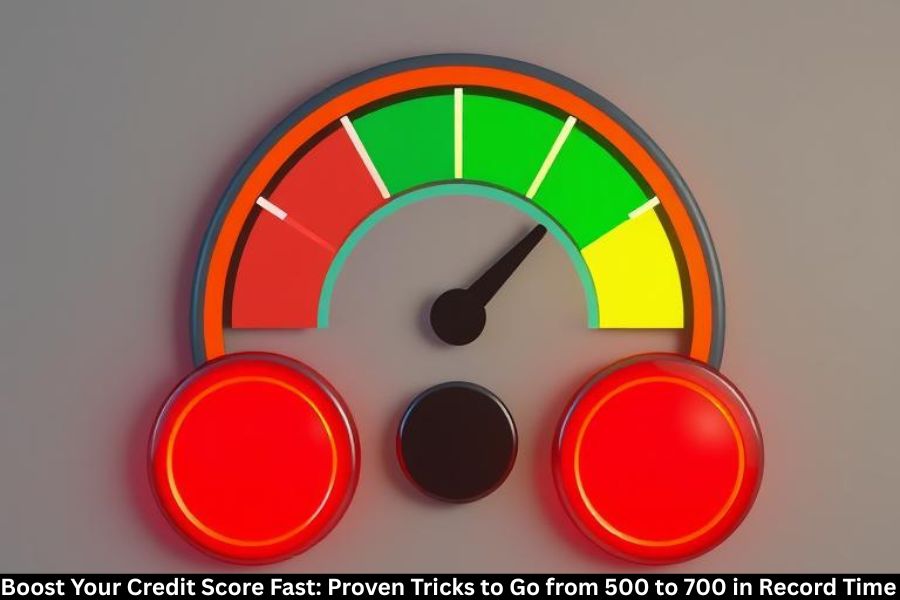A credit score is a three-digit number that reflects your financial trustworthiness. It’s used by lenders to determine your likelihood of repaying loans. Generally, a score:
- Above 750 is considered excellent
- 700–749 is good
- 650–699 is fair
- Below 600 may need improvement
A good credit score means lower interest rates, faster loan approvals, and better credit card offers.
Understanding How Credit Scores Work
Your credit score is determined by several factors:
- Payment history (35%)
- Credit utilization (30%)
- Credit age (15%)
- Credit mix (10%)
- New credit inquiries (10%)
Knowing this breakdown helps you focus on what matters most.
How Do I Raise My Credit Score in 30 Days?
Yes, it’s possible to see improvements in just one month if you take the right actions. Here’s how:
1. Pay Down Revolving Credit
Pay off or reduce balances on credit cards and lines of credit. The lower your credit utilization (keep it under 30%), the faster your score climbs.
2. Request Higher Credit Limits
If your income or payment record has improved, request an increase in your credit limit. This instantly lowers your utilization ratio, even without paying off debt.
3. Dispute Errors on Your Credit Report
Inaccurate late payments or wrong balances can drag your score down. File disputes with credit bureaus—corrections can boost your score in weeks.
4. Become an Authorized User
Join a family member’s or friend’s long-standing credit card account with good payment history. Their positive record reflects on your report too.
Pay Bills on Time — Every Time
Even one missed payment can drop your score by 60–100 points. Set reminders, automate payments, or link bills to your calendar. Consistency is key here.
Lower Your Credit Utilization Ratio
Credit utilization means how much of your available credit you’re using. For instance, if you have a $10,000 limit and spend $3,000, your ratio is 30%.
Pro tip: Keep it below 10–20% for faster results.
Keep Old Accounts Open
Closing old credit cards shortens your credit history and reduces your average account age—both hurt your score. Keep them open unless they have high fees.
How Can I Increase My CIBIL Score Quickly?
CIBIL is India’s most recognized credit bureau. To increase it fast:
- Pay EMIs and credit card bills before due dates.
- Avoid applying for multiple new loans simultaneously.
- Maintain a healthy credit mix (secured + unsecured loans).
- Review your CIBIL report regularly for discrepancies.
Reduce Hard Inquiries
Each new loan or credit card application triggers a hard inquiry—which can lower your score by a few points. Limit applications and space them out by at least 3–6 months.
Monitor Your Credit Report Regularly
Use free tools like CIBIL, Experian, or Equifax to review your report every month. Early detection of errors saves you from long-term score damage.
What is the 2-2-2 Credit Rule?
The 2-2-2 rule is a guideline lenders use to assess new borrowers. It means:
- Have at least 2 open credit accounts
- Each account should be at least 2 years old
- Maintain no more than 2 credit inquiries in the past 6 months
Following this rule shows lenders you have stable, responsible credit behavior.
How Quickly Can I Get My Credit Score from 500 to 700?
Raising your score from 500 to 700 depends on your credit habits. If you:
- Pay all bills on time
- Reduce utilization below 20%
- Avoid new debt and inquiries
You can see results in 3 to 6 months—sometimes faster with disciplined actions.
What is the 15-3 Credit Card Trick?
This trick helps optimize your utilization ratio for credit reporting. Here’s how it works:
- Pay 15 days before your statement closing date.
- Pay again 3 days before the closing date.
This ensures a lower balance is reported to credit bureaus—boosting your score quickly.
Mistakes to Avoid While Improving Credit
- Closing old accounts too early
- Paying only the minimum due
- Applying for multiple credit lines at once
- Ignoring errors on your report
Avoid these, and your progress will be steady.
Long-Term Habits for a Healthy Credit Score
Improving your credit score fast is possible, but keeping it high requires consistency.
Practice:
- Regular full payments
- Maintaining low credit usage
- Monitoring reports quarterly
- Avoiding unnecessary credit cards
Think of it like building fitness—it’s about steady effort, not quick fixes.
Conclusion
Improving your credit score fast takes focus, discipline, and smart financial moves. Whether you use strategies like the 15-3 trick or follow the 2-2-2 rule, consistency remains your best friend. Stay proactive, check your reports regularly, and practice good credit habits—your score will thank you!
FAQs
1. How do I raise my credit score in 30 days?
Pay down balances, dispute errors, and become an authorized user for the fastest results.
2. How can I increase my CIBIL score quickly?
Make timely payments, keep credit utilization low, and avoid frequent loan applications.
3. What is the 2-2-2 credit rule?
It means having 2 accounts that are at least 2 years old and fewer than 2 recent inquiries.
4. How quickly can I get my credit score from 500 to 700?
Usually within 3–6 months of consistent effort and proper debt management.
5. What is the 15-3 credit card trick?
Make two payments—15 and 3 days before your statement closes—to lower your reported balance.

